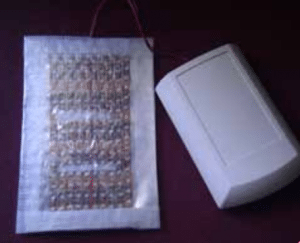
Agriculture
March 1, 2024
Bilisense Jaundice Treatment Pad
Read SolutionImplemented by
Infantrust Parenting Solutions
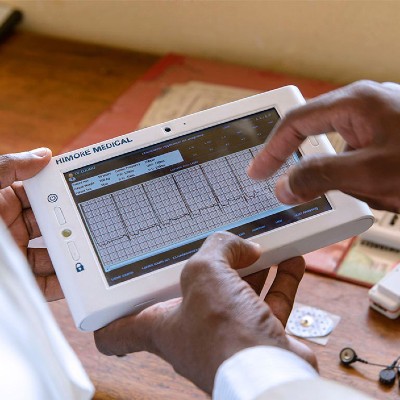
Updated on September 26, 2024
·Created on July 15, 2017
The Cardio-Pad is a tablet computer to assist in heart examinations.
The Cardio-Pad is a tablet computer that performs heart examinations for patients and transmits data to remote cardiologists. The tablet is intended for use in remote areas that do not have a trained cardiologist on-site. Test data are then sent wirelessly to trained, off-site cardiologists who analyze results and send treatment recommendations. Targeted users of this device are trained healthcare professionals in need of remote cardiologist support.
Target Regions
Worldwide
Target SDGs
SDG 3: Good Health and Well-Being
Market Suggested Retail Price
$3,299.00
Target Users (Target Impact Group)
Small and Medium-sized Enterprises
Distributors / Implementing Organizations
Cardio-Pad is distributed by Himore Medical to hospitals and health clinics.
Competitive Landscape
Direct competitors include Kit Cardiopad.
Regions
Worldwide
Manufacturing/Building Method
Mass produced at Himore Medical Equipments, located at Yaoundé, Cameroon.
Intellectural Property Type
Select Type
User Provision Model
Users can obtain this product directly from manufacturer, Cardio-Pad Kits are also distributed to hospitals and clinics in Cameroon free of charge, and patients pay 29 USD for yearly subscriptions.
Distributions to Date Status
A total of 300 devices have been manufactured as of April 2016.
Signal measurement range (mV)
Unknown
Frequency response (Hz)
Unknown
Sampling rate (Hz)
ARMV4 processor with a 600 mHz speed and a DSP processor with a 200 mHz speed for digital signal processing
Filters
Unknown
Measurements
Unknown
Consumables
ECG gel
Internal storage (number of ECGs)
2 GB
Power Supply Type
Lithium battery
Indispensable equipment for function (Y/N)
ECG gel, Bluetooth sensor box, ECG cables, electrodes, keyboard and mouse
Maintenance or calibration required by user at time of use? (Y/N)
Unknown
Design Specifications
The Cardio-Pad is a 7-inch touch screen PC tablet powered by a lithium battery with a seven-hour charge. The motherboard is made up of a dual core processor Texas Instrument OMAP3530 (a ARMV4 processor with a 600 mHz speed and a DSP processor with a 200 mHz speed for digital signal processing), a DDR RAM of 256 MB, an internal memory of 2 GB, a GSM/GPRS for data transmission, a SIM card connector, a GPS module, a Bluetooth module to read patient data, a Wi-Fi module, two internal speakers and a microphone port. The Cardio Pad uses a personalized operating system (OS) developed from the Microsoft Windows CE 5.0 32-bit OS.
The Cardio-Pad Kit consists of: Cardio-Pad, sensor, ECG cable, electrodes, tongs, panels, keyboard and mouse.
The Cardio-Pad's main applications are to conduct ECG exams, monitor vitals, and transmit patient data to a trained cardiologist for interpretation.
Technical Support
Provided by the Himore Medical team
Replacement Components
All components of the Cardio-Pad Kit can be purchased separately on the Himore Medical website.
Lifecycle
Unknown
Manufacturer Specified Performance Parameters
Performance targets include easy to use, quick diagnosis and reliable transmission of data.
Vetted Performance Status
The Cardio-Pad has proven 97.7% reliable in tests conducted in Cameroon.
Safety
Any appropriate standard for electrical safety (e.g., ANSI/AAMI ES-1, IEC 601-1) may be used.
Complementary Technical Systems
A reliable power source is needed to charge product every 7 hours.
Academic Research and References
Noubiap, J.J., 2014, Local Innovation for Improving Primary Care Cardiology in Resource-Limited African Settings: an Insight on the Cardio Pad® Project in Cameroon, Cardiovascular Diagnosis & Therapy, 4(5), pp. 397–400.
Noubiap, J.J., 2017, The Cardio-PadTM Project: Progress and Remaining Challenges, Cardiovascular Diagnosis & Therapy, 7(1), pp. 98–101.
Schweitzer, F., 2015, Technologically Reflective Individuals as Enablers of Social Innovation, The Journal of Product Innovation Management, 32(6), pp. 847–860.
Arunan, E., 2015, What Can Scientists/Science Administrators Do for ‘Make in India’?, Current Science, 109(9), pp. 1519-1520.
Kamga, Y., 2017, Faisabilité et Apport de la Télécardiologie dans la Prise en Charge des Patients dans un Hôpital de District du Cameroun, Journal of Medicine and Health Sciences, 18, 63-68.
Andeme Bikoro D.M., 2019, Exploring the Potential of IT-Enabled Healthcare in Rural Regions in Cameroon: A Case Study, New Knowledge in Information Systems and Technologies: Advances in Intelligent Systems and Computing, 932.
Compliance with regulations
Unknown
Evaluation methods
This application was tested for rate of success in digital cardiac signal processing and the results compared with those of other researchers using the MIT MIB database

Agriculture
March 1, 2024
Implemented by
Infantrust Parenting Solutions

Agriculture
February 21, 2024
Implemented by
Inteco
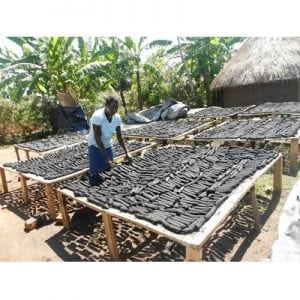
Agriculture
November 22, 2024
Implemented by
Appropriate Energy Saving Technologies Limited (AEST)
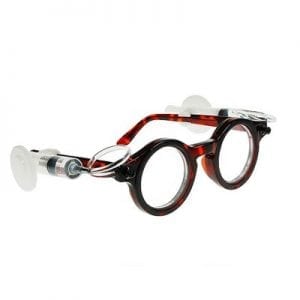
Agriculture
February 5, 2024
Implemented by
Centre for Vision in the Developing World
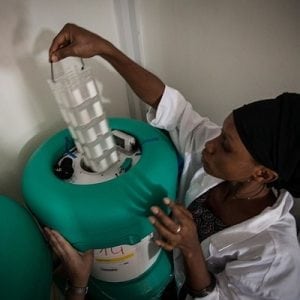
Agriculture
February 20, 2024
Implemented by
Intellectual Ventures Lab
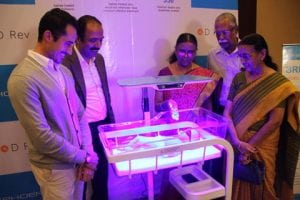
Agriculture
February 16, 2024
Implemented by
Equalize Health
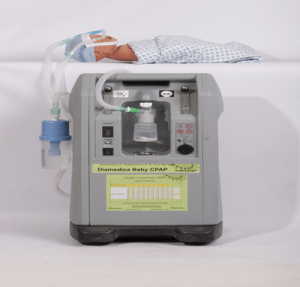
Agriculture
September 27, 2024
Implemented by
Diamedica
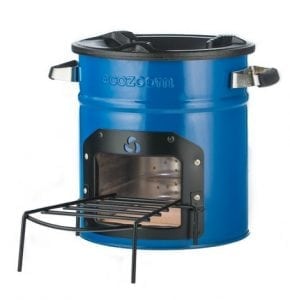
Agriculture
December 2, 2024
Implemented by
BioLite

Agriculture
December 3, 2024
Implemented by
Veryday (McKinsey Design)
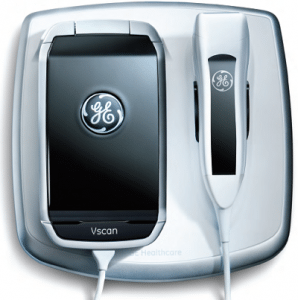
Agriculture
February 8, 2024
Implemented by
GE Healthcare
Have thoughts on how we can improve?
Give Us Feedback